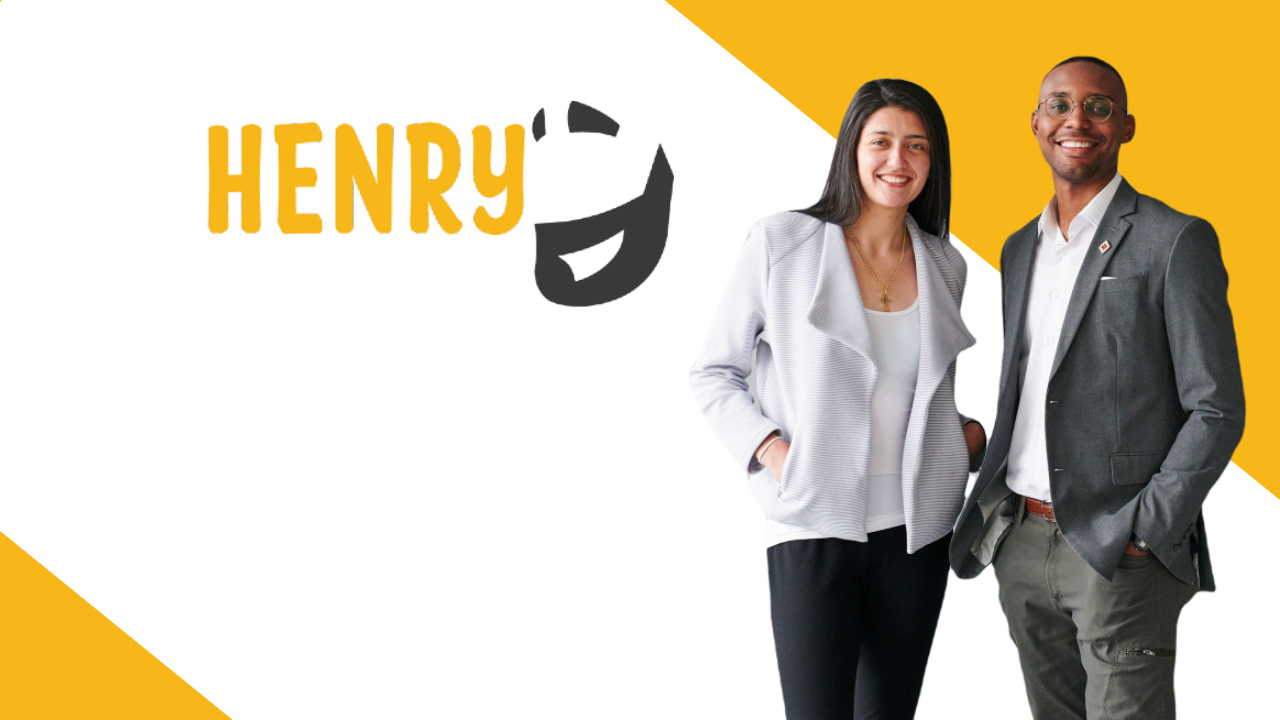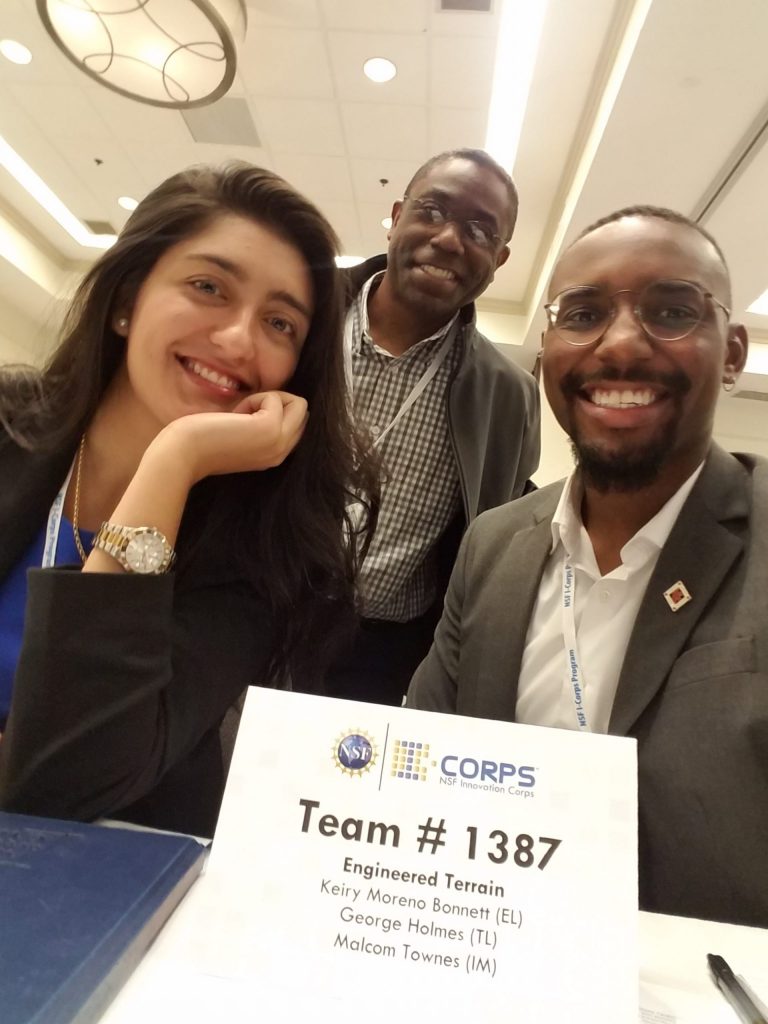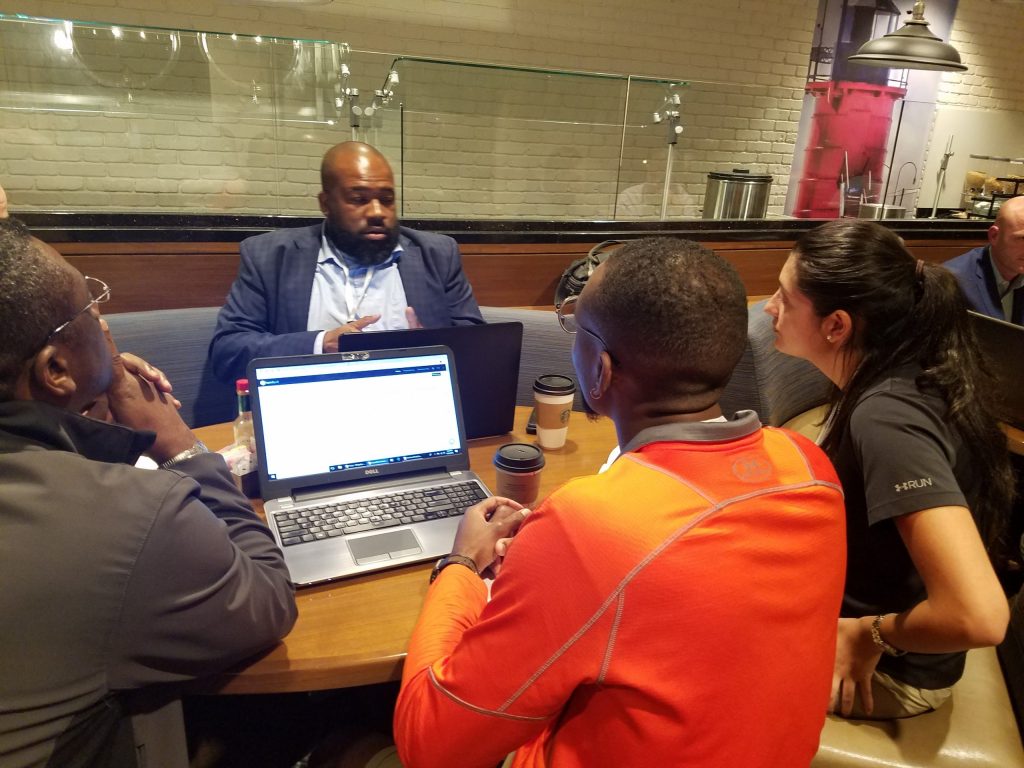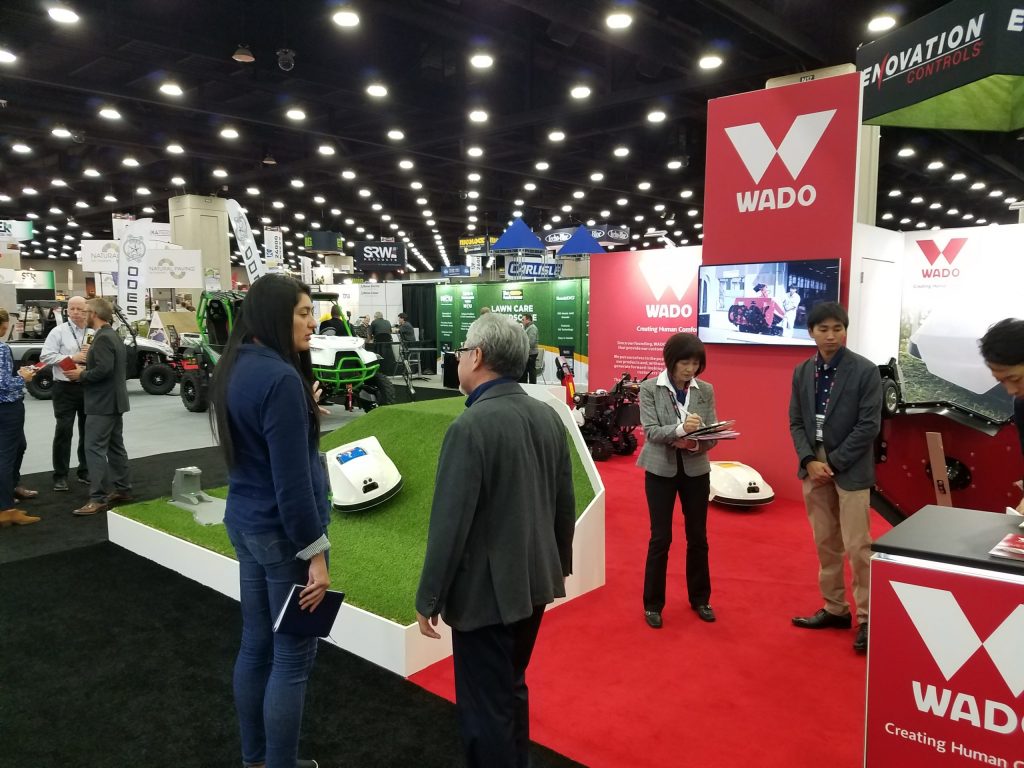Former I-Corps participants Dr. George Leno Holmes Jr. and Keiry Moreno Bonnett are developing the future of work in the $100B+ landscaping industry with Hire Henry, a company developing industrial autonomous robotic lawn mowers.
After graduating with a B.S. in Mechanical Engineering from Missouri University of Science and Technology, Dr. Holmes thought back to high school, when he spent his free-time mowing lawns with his grandfather, Leno Holmes, in St. Louis, Missouri.
“I thought back to those days and wondered if it would be possible to build a robotic lawn mower,” Dr. Holmes said.
After consulting with his professors, he learned that the best way to reach that goal would be to pursue a PhD in robotics. According to Dr. Holmes, finding the I-Corps program during his PhD catalyzed the origin and growth of Hire Henry.

Hire Henry founders, Keiry Moreno Bonnett (left) and Dr. George Leno Holmes Jr. (right), created an autonomous, fully-electric industrial lawn mower.
“We needed to get a wide breadth of experience about the commercial landscaping industry and we needed funds in order to accomplish that,” Dr. Holmes said. “And I-Corps provided exactly that.”
After completing the Missouri S&T I-Corps Site Program, Dr. Holmes, a PhD student at the time, recruited Keiry Moreno Bonnett, an undergraduate student at the time, to conduct computer vision research for an early autonomous robot prototype. Soon thereafter, the two assembled their application for the National I-Corps program, including recruiting a PI/mentor, coordinating with budgeting offices, writing the proposal, contacting the NSF, and raising money.
“I-Corps was an exposure to a different world,” Bonnett, a full-time mechanical engineering undergraduate student and Academic All-American basketball player at the time, said. “It was an extremely good experience to see that it is possible to translate knowledge from academia to solve practical problems in the real world.”
Throughout their I-Corps experience, Dr. Holmes and Bonnett traveled to over seven states and conducted more than 300 interviews with stakeholders in the landscaping industry, including people at the largest conferences in the industry. One of their key findings was that the industry hadn’t adjusted work habits to millennial and GenZ populations entering the workforce.
“We really focused on what the future of work looks like in this space,” Dr. Holmes said. “With the creation of businesses like Uber, DoorDash, Amazon, and Walmart, landscapers can’t compete for young workers. So, we focused on redesigning the task of mowing the grass for the modern worker.”

The Hire Henry team – Keiry Moreno Bonnett (left), Malcolm Townes (center), and Dr. George Leno Holmes Jr. (right) – at the NSF I-Corps National Program in Detroit, MI, in 2018.
Henry, the company’s autonomous lawn mower, has a 60-inch cut width and is fully electric, so it is productive while reducing greenhouse gas emissions compared to gasoline-powered outdoor power equipment. Dr. Holmes said that building a fully-electric product was vital as states, like California, begin passing legislation that will ban the sale of new gasoline-powered tools, and federal efforts encourage cities to become more sustainable.
“This is the beginning of a pretty big shift,” Dr. Holmes said. “Henry being electric is already proving to be extremely important for our core customers.”
In addition to being fully electric, the team said that, in the future, Henry will have the functionality to share data about its environmental impact, productivity, and more through an online dashboard.

The Hire Henry team meeting with I-Corps National Program instructor Jason Beale.
“In the future, our customers will be able to go to our website and define the areas that need to be mowed within 10 minutes,” Dr. Holmes said. “After the area is defined, the customer can drive to the worksite, remove Henry, potentially from a fully electric pickup truck, place it into the predefined area, press go, and Henry mows the grass completely by itself.”
Dr. Holmes continued, noting, “As Henry is being deployed, all the data will be collected to the cloud, and it can be presented as a dashboard to show landscapers how many greenhouse gas emissions they’ve saved, realtime battery status, productivity, potential operations improvements, and other property enhancements such as irrigation and fertilization in specific locations. We are focused on building the entire product ecosystem for our customers.”
Hire Henry is currently focused on city and municipal clients, and is launching its first full product in the coming weeks. In the past, the team conducted a pilot program maintaining roadsides and a park with the City of Northwoods, Missouri. And, currently, the team is conducting a pilot program with the City of Sugar Land, Texas at their 340-acre regional airport. The team just announced the launch of their third pilot partnership in the state of Virginia.

The Hire Henry team attended the GIE Expo – the landscaping industry’s largest event – in 2018 in Louisville, Kentucky.
Dr. Holmes remarked that I-Corps was an inflection point for Hire Henry. The Hire Henry team recognized the value of the larger network they built through I-Corps, including their PI, Amardeep Kaur, PhD, their mentor, Malcolm Townes, and Keith Strassner from the Missouri S&T I-Corps Site Program who endorsed their grant proposal to the NSF I-Corps National Program.
“I-Corps was a big catalyst to our movement as a company,” Dr. Holmes said. “It gave us a unique perspective on the industry. When we go out and talk with industry experts about the research we’ve done with the National Science Foundation I-Corps Program, they get super excited.”
The Hire Henry team plans to announce future pilot projects via their LinkedIn and Instagram channels. You can learn more about Hire Henry and its Research Partnership Pilot Program on their website.
